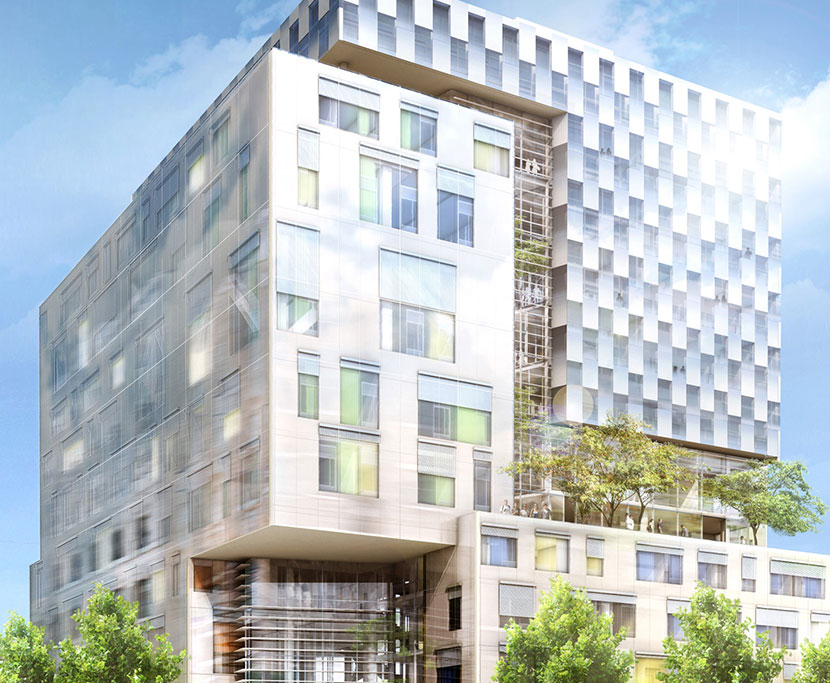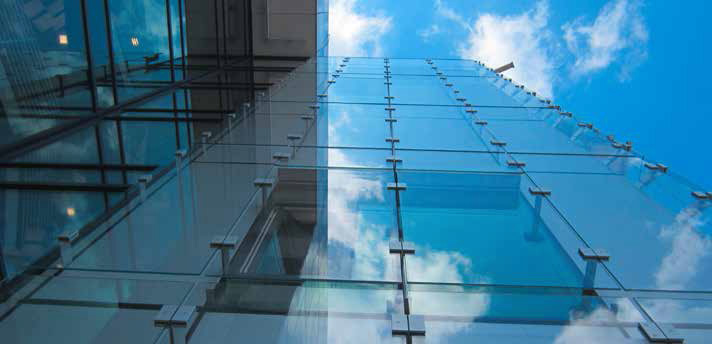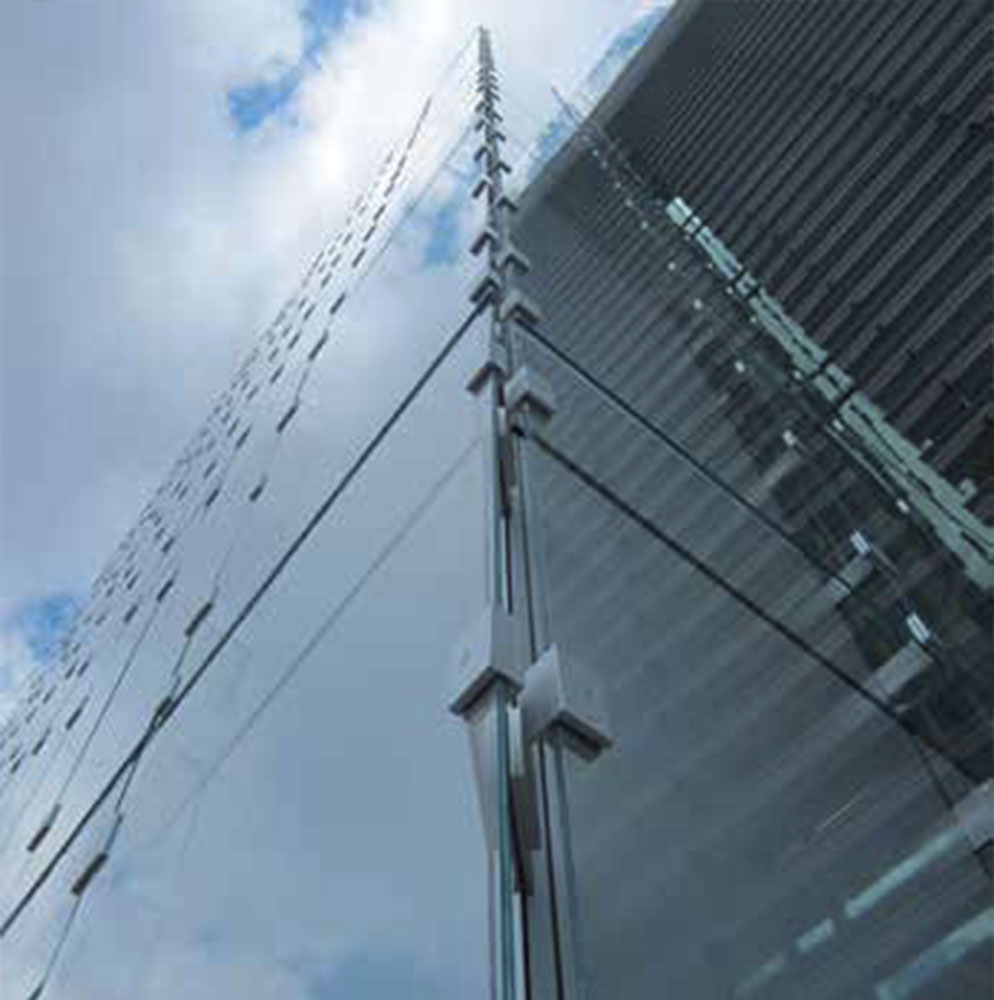ADVANCED INTERLAYER SOLUTIONS



The new John and Frances Angelos Law Center is the home of the University of Baltimore School of Law. Sited at the intersection of North Charles Street and Mt. Royal Avenue in Baltimore, Maryland USA, it is a fascinating example of how structural glass incorporating SentryGlas® ionoplast interlayer can be used to not only provide eye-catching aesthetics, but also contribute functionally to one of the greenest buildings in Baltimore and the metropolitan Washington, DC region.
Maximum light capture was a major part of the design brief, coupled to innovative air handling and water capture systems. In addition, recycled materials were used extensively through-out the construction phase; the plan being to attain a Leadership in Energy and Environmental (LEED) gold rating. Efforts are currently underway to push the rating to platinum.
The 12 floor, 17.624 m2 (189,700 sqft) sustainably-designed signature facility was designed by Behnisch Architekten in Stuttgart, Germany in partnership with Baltimore’s Ayers/ Saint/Gross, Inc. following an international design competition, with the Whiting-Turner Contracting Company, headquartered in Baltimore, MD acting as the Construction Manager. It comprises three interlocking L-shaped building spaces, which house classroom facilities, offices and the law library. The administrative space also includes the separate accessible clinics where students, faculty and local attorneys provide legal services to the community. An atrium over a central area connects the three building spaces providing an area for a lobby, coffee bars and lounges. The Appellate Moot Court extends down from the main lobby to a lower garden level and accommodates court hearings, lectures and other events.
According to Robert Matthew Noblett, a partner at Behnisch Architekten: “We had two reasons to use an external glass façade. One of the classrooms on northern aspect of the building faces the Jones Falls Expressway, with six lanes of freeway traffic, so the thermal glazing outside of that classroom is laminated to improve the acoustical performance. With regards to the rest of the building, for the rain screen curtain wall, we needed a surface that would protect the exterior from both the sun and high winds. We knew that it would be really nice if we could use glass, but also find a way to unify the facade visually into a single element, while incorporating a punched-window approach – where the spaces in the façade are specific to the rooms behind them.
“We knew from the beginning that we would laminate the glass on the ground floor,” Noblett continues, “providing additional protection from potential accidents or vandalism, but as we got further into the design process we decided that we wanted to laminate the whole thing. The SentryGlas® product does the job very effectively; it is a very clear alternative to other interlayers, which also do not perform as well structurally. In this instance, SentryGlas® was the obvious answer. We also had to make sure that the SentryGlas® interlayer complemented the highly transparent, low-iron glass that we had specified, not only in the early life of the building, but throughout the life of the façade. Another important factor was edge performance. Because the rain screen is suspended or floating, the edges are completely exposed. We had to make sure that SentryGlas® offered us a very clean edge appearance.”
Applications
Region
Interlayer
Architect
Laminator
Engineer

Keep up with the very latest news in laminated glass innovations and procedures by subscribing to our free Laminated Glass News.
Subscribe here